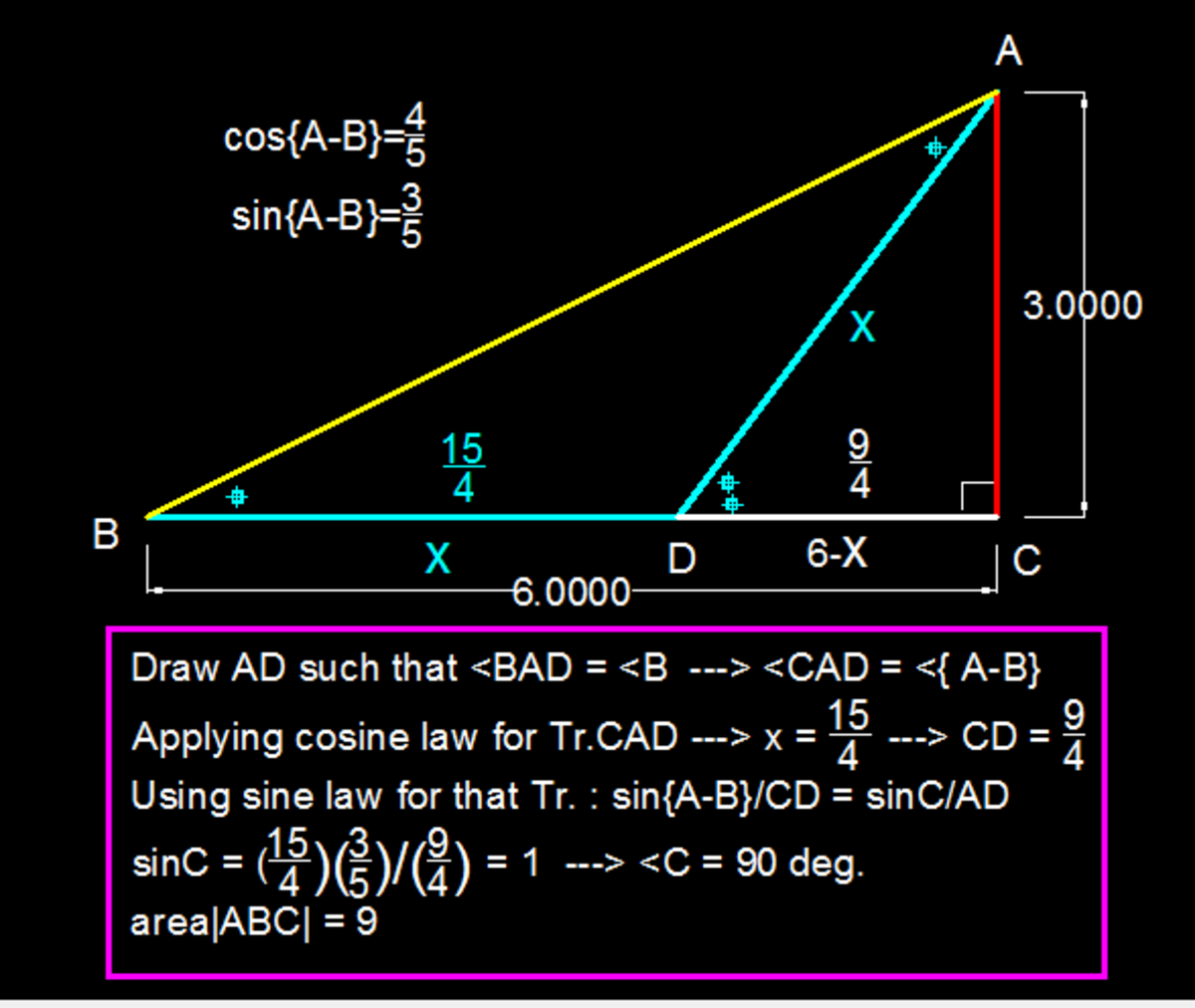Brain works
If in ∆ABC , and cos(A-B) = then find the area of ∆ABC.
The answer is 9.
This section requires Javascript.
You are seeing this because something didn't load right. We suggest you, (a) try
refreshing the page, (b) enabling javascript if it is disabled on your browser and,
finally, (c)
loading the
non-javascript version of this page
. We're sorry about the hassle.

Using Sine Rule we know that:
sin A a = sin B b ⇒ sin b sin A = b a = 3 6 = 2 ⇒ sin A = 2 sin B
Let sin B = x ⇒ cos B = 1 − x 2
⇒ sin A = 2 x ⇒ cos A = 1 − 4 x 2
cos A − B = cos A cos B + sin A sin B = 5 4
⇒ 1 − 4 x 2 1 − x 2 + ( 2 x ) ( x ) = 5 4
⇒ 1 − 4 x 2 1 − x 2 = 5 4 − 2 x 2
⇒ ( 1 − 4 x 2 ) ( 1 − x 2 ) = ( 5 4 − 2 x 2 ) 2
⇒ 1 − 5 x 2 + 4 x 2 = 2 5 1 6 − 5 1 6 x 2 + 4 x 4
⇒ ( 5 − 5 1 6 ) x 2 = 1 − 2 5 1 6 ⇒ 5 9 x 2 = 2 5 9 ⇒ x = 5 1
⇒ sin B = 5 1 ⇒ cos B = 5 2 ⇒ sin A = 5 2 ⇒ cos A = 5 1
The area of △ A B C is given by:
A = 2 1 ( 3 cos A + 6 cos B ) ( 6 sin B ) = 2 1 ( 5 3 + 5 1 2 ) ( 5 6 )
= 2 1 × 5 1 3 × 5 6 = 5 4 5 = 9